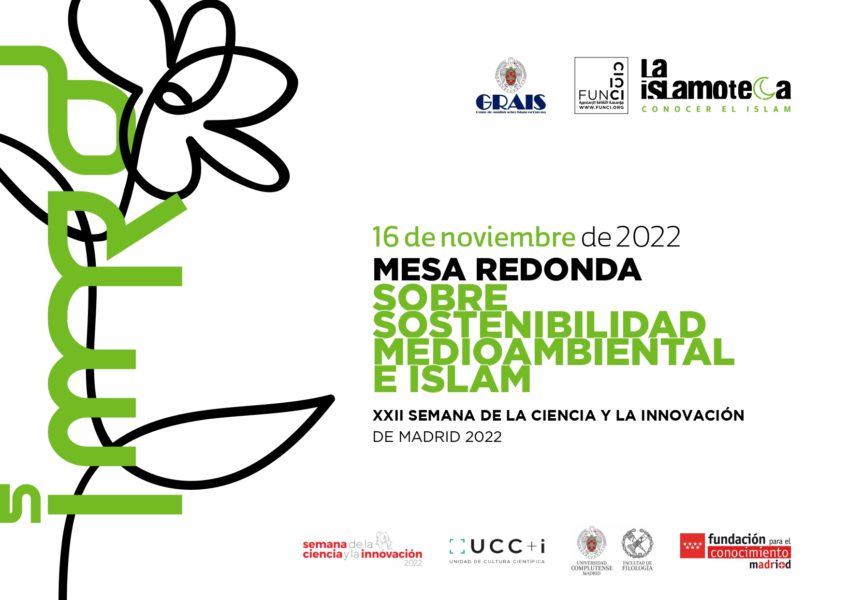Within the framework of the 22nd Madrid Science and Innovation Week, a round table entitled “Environmental Sustainability and Islam” has been organised at the Complutense University of Madrid. Its aim is to analyse environmentalism from the perspective of Islam and to learn about some of the local and international initiatives that have been promoted from Islamic teachings to care for the planet. The round table will include the participation of Luey Hamadache (Islamic Cultural Centre of Valencia, student of Islamic sciences), Encarna Gutiérrez (Islamic Culture Foundation) and Borja Heredia (Ministry for Ecological Transition and the Demographic Challenge), and will be moderated by Johanna M. Lems (GRAIS, researcher Margarita Salas UCM/UAM). After the speakers’ interventions, there will be a question and answer session.
In September 2015, the United Nations adopted the 2030 Agenda for Sustainable Development, an action plan that established 17 goals (SDGs) related to the economic, social and environmental spheres, with the aim of tackling the climate emergency in particular. As the latest EU SDG progress monitoring report, published in 2022, shows, now more than ever we need to promote a better understanding of our common destiny, which “lays the reflective, moral and political foundations to address the ecological-climate crisis that threatens our world” (Olabe, 2022).
Target Audience
When, when and where?
- Date: Wednesday, 16 November 2022
- Time: from 18:00 to 20:30 (CET/UTC+1)
- Mode: virtual format (Zoom application).
Prior registration is required to receive the link to the round table.
Organizers
Group of Analysis on Islam in Europe (GRAIS ,https://www.ucm.es/grais) and Islamic culture Foundation (FUNCI, https://funci.org/).
This post is available in: English Español

